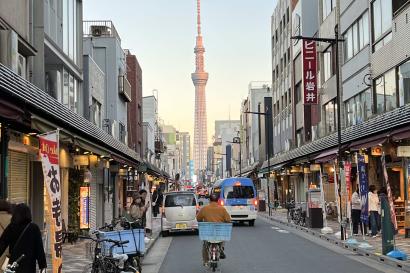So you’ve recently received your acceptance to an IES Abroad program. Now what?
You probably feel incredibly excited, but also nervous because the idea of spending several months in an entirely different country and at an entirely different school is daunting—I know I’ve felt that way. Here are some tips I’ve come up with for preparing to study abroad that will hopefully make the process less nerve-wracking and allow you to focus on your excitement for the upcoming semester.
- Stay on Top of Paperwork. Filling out forms may be the least fun part of preparing to study abroad, but it is undoubtedly the most important. From obtaining a visa to getting a physical at your doctor’s office to sharing your flight itinerary and requesting credit for courses you’ll take, there is a substantial amount of paperwork you will need to complete before your departure—both for IES Abroad and for your home university—so make sure that you keep track of all of these forms and their deadlines. Pro tip: Excel spreadsheets are a lifesaver if you need help getting everything organized in one place.
- Figure Out Crucial Details Beforehand. There are many parts of your day which you likely take for granted at your home school, but which may be surprisingly complicated or unexpected during your semester abroad. Doing your due diligence in advance, like figuring out how you will get to campus for example, will help ease your predeparture anxieties and smoothen your transition into a new environment.
- Prepare for Coursework. If you anticipate that any of the courses you will take will require you to have any relevant knowledge prior to the start of the semester, I recommend you begin preparing early—nobody wants to feel like they are behind as soon as they get on campus! Personally, because I do not know any Japanese and will be taking a Japanese language course during my program, I plan to learn the Hiragana and Katakana syllabaries during the summer prior to my fall semester abroad.
- Do Sightseeing Research! Now for the fun part: figuring out where you’d like to go and what you’d like to see during your study abroad program. I suggest you start your research before your program begins so that you can arrive with a list of restaurants, historic sites, shops, and other places that you wish to visit so that you can make the most out of your trip (and see how everything fits into your budget before you leave home). You can always add more to your list later, but you may have less time for planning once you are already abroad!
In short, the bottom line is that advance planning is key for ensuring that your arrival at your study abroad program goes as smoothly as possible. Best of luck in your preparation process, and enjoy the amazing experience you have ahead of you!
P.S. If you want to learn more about what it’s like to study abroad in Tokyo specifically, keep an eye out for my blogs this coming semester! I plan to write on everything from academics, to food, to sightseeing and shopping, so, in short, if there’s something you’re interested in, I’ll probably cover it as I aim to provide a complete picture of my Japan experience.







